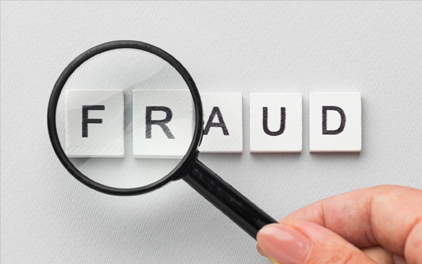Alison has issued a warning to the public to watch out for the latest online scams. As a global education platform catering for millions of learners, Alison takes its security seriously and upholds the highest standards in safeguarding learners’ data.
“Criminals are constantly looking for new ways to target members of the public and while our users have nothing to worry about, it is useful to know some of their tactics and how you can spot a scam,” said a company spokesperson.
In one recent instance relating to Alison, the company was informed of a syndicate posing as an Alison HR manager and using the email address [email protected] regarding a Data Entry position. These criminals also contacted an individual by phone. “They informed their target that their résumé and contact information had been found on a job portal like Indeed and set up an interview. Their scam is made more convincing as they plan these interviews using Telegram or Skype. They then tried to get this individual to pay for the training they would receive for the falsely advertised position.”
Signs it Could Be Fraud
It can be difficult to recognise fraud at work. Take a look at a few ways fraudsters can try to trick you.
- Phishing
Phishing is a criminal tactic where scammers send emails pretending to be from a legitimate company, sometimes a company you may know, or a government institution. They go as far as creating an email address, letterhead, phone number, and website all to appear credible. Here, they attempt to trick the reader into making payments and sharing personal information like pin numbers or credit card numbers.
- Smishing
This is a technique where criminals send text messages to try and get individuals to reveal their personal data. They do this by sending you a malicious link to click on to execute their scam.
These attempts are commonplace and by using the Alison name, may seem true. However, we urge you to be mindful of these fraudulent operations, and take precautions if you suspect something is “off”.

How to Recognise Legitimate Alison Communication
It’s important to remember that online fraud scams seem legitimate. Be sure to double check all communication received from Alison. You can recognise and verify our communication through the following methods:
- All our emails use this domain name: @alison.com
- Open positions are available on our website: https://alison.com/about/careers
- Users can check a contact’s ID with the support team on the live chat or via email: [email protected]
Don’t rely on branding elements to judge the safety of an email.
How to Handle Phishing Emails
The email source may look legitimate and from a source you normally engage with, but if you are suspicious, do the following:
- Do not reply to the email. Instead, compose a new email and send it to the company ([email protected]) to investigate the contents of the email you have received.
- Report it. If your email service provider includes a button to report phish, use it.
- Remove it. Delete the message from your inbox.
Tips to Protect Yourself from Fraud

Fraudsters will always come up with new ways to try and scam you. Read the below tips to protect yourself from falling victim to online fraud:
- Beware phishing scams. Phishing scams utilise fraudulent (yet believable emails) and websites to lure individuals into disclosing their private information. Do not click or open links and pop-ups from unfamiliar sources.
- Keep private information private. Be mindful of how much of your personal information you share online.
- Surf safely. Use trusted and secure trusted networks to complete any financial transactions. Criminals have found a way to intercept wireless networks and phish your personal information.
- Never share personal information online. Fraudsters attempt to “catch” you by saying there is something wrong with your account. They will require you to verify personal information and use this information to gain access to your account.
- Don’t act under pressure. Fraudsters attempt to pressure you to act quickly, without giving you much time to think. They do this by threatening closure of accounts, dropping legal terms, or that you will lose something if you don’t act immediately. Take time to double check everything before giving out information or saying “yes” to things online.
- Don’t send money. Scammers also insist on you making payments using money transfer, deposit money, a gift card, or sending a check/cheque.
Fraud is a serious issue. Knowledge is your best weapon. If you see something suspicious, report it.








